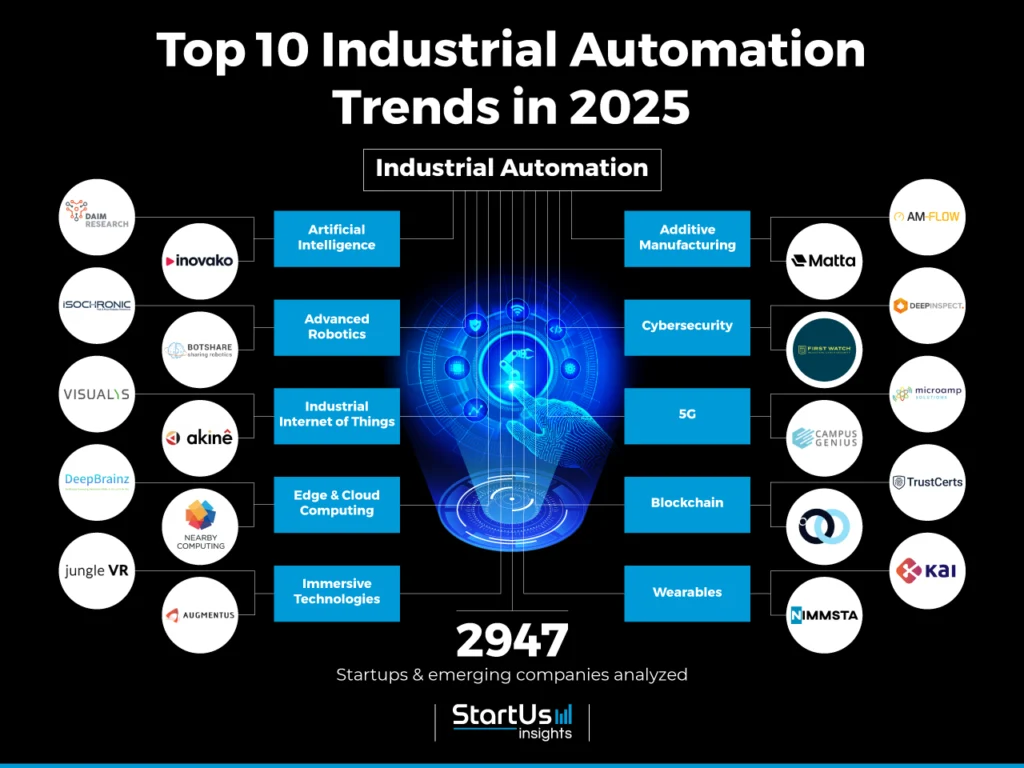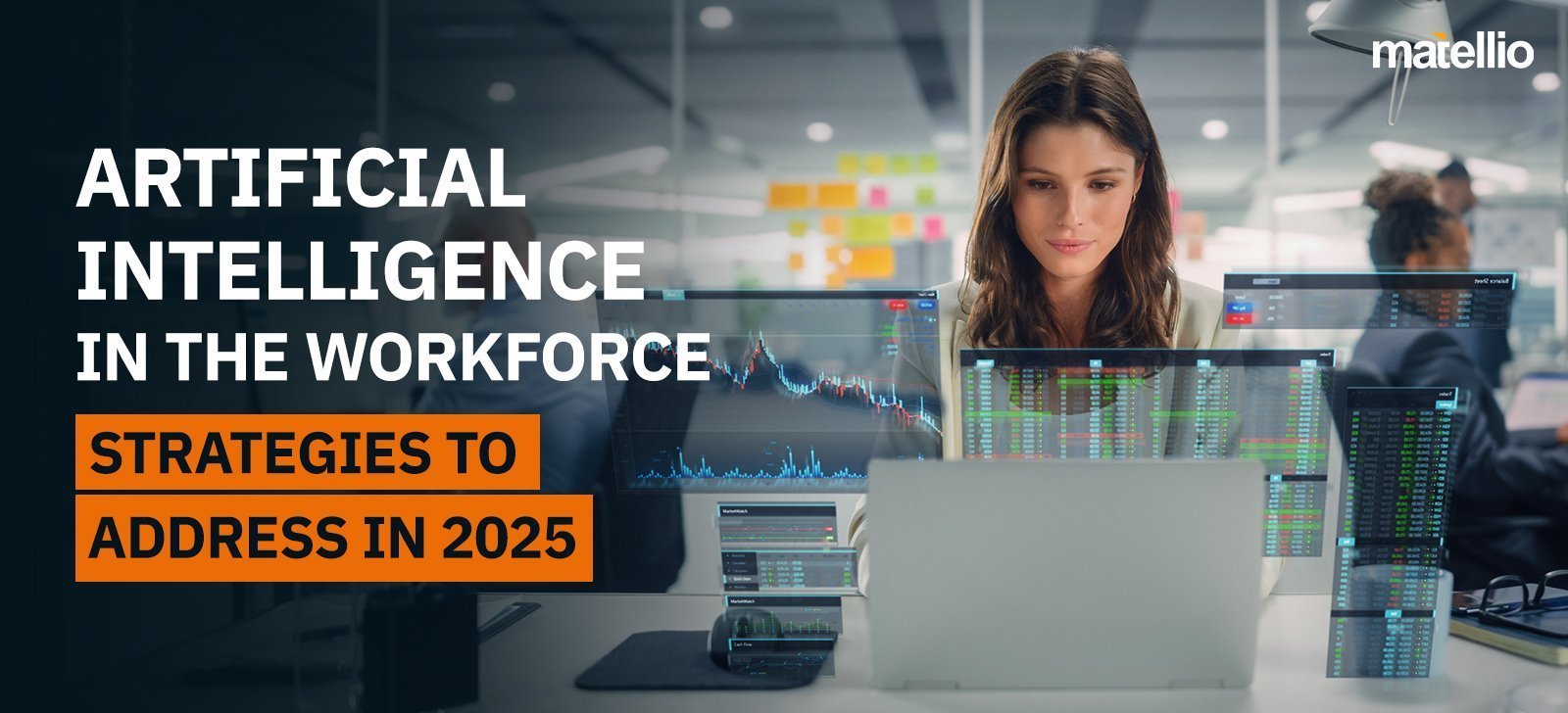The rise of Artificial Intelligence (AI) and automation is revolutionizing industries worldwide, and the United States is at the forefront of this transformation. As AI-driven software continues to advance, its influence on the workforce is becoming increasingly apparent. By 2025, AI-powered automation will significantly reshape how people work, what types of jobs exist, and how businesses operate. While this shift promises increased efficiency and productivity, it also brings new challenges and opportunities that need to be carefully managed.
In this article, we explore how AI-driven automation is transforming the workforce in the USA, its impact on different industries, the potential benefits and risks, and how businesses and employees can adapt to this rapidly changing landscape.
The Role of AI in Automation
AI-driven automation refers to the use of AI technologies to perform tasks that were traditionally done by humans. These tasks range from repetitive administrative duties to more complex decision-making processes. Automation can be applied across industries such as manufacturing, healthcare, finance, retail, and more.
Key Technologies Driving AI-Driven Automation
AI-driven automation encompasses a variety of technologies that work together to improve efficiency, productivity, and accuracy:
- Machine Learning (ML): Machines that learn from data, improving their performance over time without human intervention.
- Natural Language Processing (NLP): Allows machines to understand, interpret, and generate human language, facilitating automated customer service, chatbots, and content generation.
- Robotic Process Automation (RPA): Software robots that automate rule-based, repetitive tasks such as data entry, invoicing, and payroll processing.
- Computer Vision: Enables machines to “see” and interpret visual data, which is critical for tasks like quality control in manufacturing or autonomous driving.
By 2025, AI will continue to evolve, enabling even more sophisticated automation processes that were previously unimaginable.

How AI-Driven Automation is Reshaping the Workforce
As AI-driven automation becomes more integrated into businesses, it will reshape the workforce in several ways. From replacing certain jobs to creating new ones, the shift is both exciting and challenging.
1. Job Displacement and Transformation
One of the most talked-about impacts of AI-driven automation is job displacement. AI and robots are able to perform tasks that were traditionally carried out by human workers, leading to concerns about job losses.
Jobs Most at Risk of Automation
- Manufacturing and Assembly: Automation has already been widely implemented in factories, and by 2025, robots will take over more routine assembly line tasks such as welding, packaging, and quality control.
- Administrative and Clerical Jobs: AI-powered software can handle repetitive tasks like data entry, scheduling, and bookkeeping, which could reduce the need for human employees in these roles.
- Customer Service: Chatbots and AI-driven customer service platforms can address common customer inquiries, reducing the demand for human customer support representatives.
Jobs That Will Transform
While automation may replace some jobs, it will also transform others, requiring workers to acquire new skills and adapt to AI technologies.
- AI-Enhanced Roles: Workers in roles like marketing, finance, and human resources will increasingly rely on AI tools to analyze data, predict trends, and optimize decisions.
- Creative Professions: AI tools will augment creative professionals, helping them with tasks like content creation, graphic design, and music production, but human creativity and decision-making will remain essential.
- Technical and IT Jobs: As businesses adopt AI systems, there will be a growing demand for AI specialists, data scientists, and IT professionals who can develop, maintain, and improve these systems.
2. Increased Productivity and Efficiency
AI-driven automation can significantly enhance productivity by reducing human error, increasing speed, and ensuring consistency. As repetitive tasks are automated, employees can focus on higher-value activities that require human judgment and creativity.
Key Benefits of Automation for Businesses
- Cost Savings: Businesses can reduce operational costs by replacing manual labor with AI-powered systems, especially for tasks like inventory management, data analysis, and reporting.
- Faster Decision-Making: AI algorithms can analyze vast amounts of data in real-time, providing businesses with actionable insights that lead to faster, more informed decisions.
- Consistency and Accuracy: Unlike humans, AI does not tire or make mistakes, leading to higher consistency and accuracy in tasks like data entry, manufacturing, and customer service.
Impact on Workflows
- Streamlined Operations: AI automates tasks across departments such as finance, marketing, and HR, ensuring smoother workflows and quicker turnaround times.
- Improved Collaboration: AI tools can improve collaboration among teams by automatically organizing information, providing insights, and suggesting improvements to processes.
3. Creation of New Jobs and Skills
While automation may lead to job displacement, it also creates new opportunities. By 2025, many industries will require workers who possess skills in areas such as data analysis, AI programming, and robotics maintenance.
New Job Roles Emerging from AI Automation
- AI Specialists and Data Scientists: Professionals who can design, develop, and maintain AI systems will be in high demand. These roles require expertise in machine learning, data analytics, and programming languages like Python.
- Automation Engineers: As businesses implement AI-driven automation, automation engineers will be responsible for setting up, troubleshooting, and maintaining robotic and software systems.
- AI Ethics and Policy Experts: As AI systems become more pervasive, there will be a growing need for professionals who can ensure that AI is developed and used ethically, adhering to laws and societal values.
- AI Trainers and Educators: Workers who train AI systems to improve their performance, especially in specialized fields like healthcare or finance, will be essential in ensuring the effectiveness and accuracy of automated systems.
Skills Employees Will Need
- Adaptability: The workforce of 2025 will need to continuously adapt to new AI technologies and tools, requiring a mindset of lifelong learning.
- AI Literacy: Basic knowledge of AI, machine learning, and data analytics will become essential for most roles, even in non-technical fields.
- Emotional Intelligence: Jobs that require empathy, negotiation, or interpersonal skills will continue to rely on humans, even as AI handles repetitive or data-driven tasks.
4. Changes in Work Culture and the Workplace
AI-driven automation will change how businesses organize work, collaborate, and engage with employees. In particular, AI tools will reshape workplace dynamics and employee expectations.
Remote Work and Flexibility
- AI and Remote Work: AI tools that facilitate communication, project management, and collaboration will continue to empower remote work, allowing employees to be productive regardless of location.
- Work-Life Balance: Automation will free up time for employees, potentially leading to a better work-life balance. Routine tasks will be handled by machines, allowing workers to focus on creative and strategic endeavors.
Employee Training and Upskilling
- Continuous Learning: Businesses will need to invest in upskilling and reskilling programs to ensure that employees are equipped to work alongside AI systems. Online platforms, in-person workshops, and AI-powered learning tools will become essential in the workforce.
- Employee-Employer Collaboration: AI tools will enable better collaboration between employers and employees, offering personalized training, feedback, and performance reviews based on data-driven insights.
The Ethical Implications of AI-Driven Automation
As AI-driven automation becomes more prevalent, ethical considerations will become increasingly important. From concerns about job displacement to the responsible use of AI, businesses must be mindful of the broader societal impact of automation.
Addressing Job Displacement
- Retraining Programs: Companies and governments must invest in retraining initiatives to help displaced workers transition to new roles in the AI-driven economy.
- Universal Basic Income (UBI): Some experts suggest exploring UBI as a potential solution to support individuals whose jobs are displaced by automation, providing a safety net while they reskill or transition to new opportunities.
Ensuring Fairness and Transparency
- Bias in AI: AI algorithms can inherit biases from the data they are trained on. To prevent discriminatory outcomes, businesses must ensure that AI systems are designed and audited for fairness, transparency, and inclusivity.
- Data Privacy: AI-driven automation relies on vast amounts of data. Companies must prioritize data privacy and security to protect users and employees from exploitation or misuse of personal information.
Preparing for the Future of Work in 2025
By 2025, the workforce in the USA will have undergone significant changes driven by AI-powered automation. To thrive in this new landscape, businesses and employees must be proactive in adapting to the evolving environment.
For Businesses
- Invest in AI Technologies: Embrace AI-driven automation to stay competitive while also ensuring ethical practices are followed.
- Prioritize Workforce Development: Continuously upskill employees to keep pace with AI technologies, fostering a culture of innovation and adaptability.
- Develop Ethical Guidelines: Implement clear policies for the ethical use of AI, focusing on transparency, fairness, and data privacy.
For Employees
- Embrace Lifelong Learning: Stay ahead of the curve by continually developing new skills, especially those related to AI and data analytics.
- Adapt to New Roles: Be open to exploring new job opportunities and roles created by AI-driven automation.
- Focus on Emotional Intelligence: As automation takes over more technical tasks, human skills like empathy, creativity, and emotional intelligence will remain valuable in the workplace.
Conclusion
AI-driven automation is rapidly reshaping the workforce in the USA, revolutionizing industries, enhancing efficiency, and redefining job roles. While automation will replace certain repetitive tasks, it will also create new job opportunities and transform the way businesses operate. The key to successfully navigating this transition lies in adaptability—both for businesses and employees.
Companies must invest in AI responsibly, ensuring ethical implementation while prioritizing workforce development and upskilling. Meanwhile, employees should embrace lifelong learning, focusing on skills that complement AI rather than compete with it.
